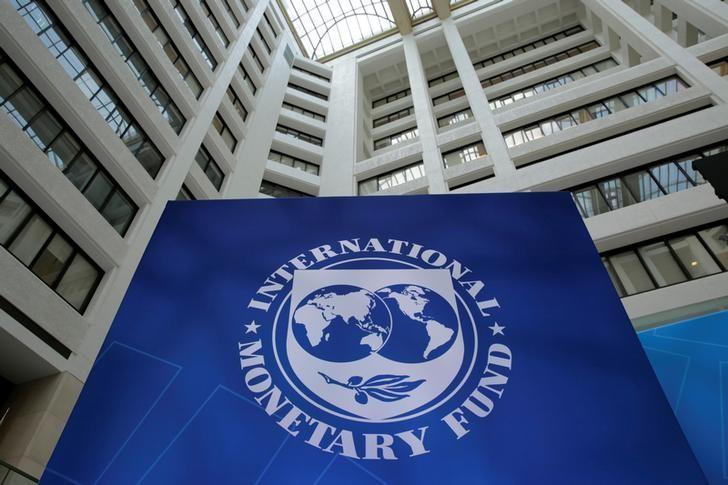
(Photo: Reuters)
Is China subverting the world order? Is China going to rule the world? Will China and the US enter in direct conflict for world leadership? Any time scholars, politicians and journalists debate the transformation of the international system - at least during the last 20 years - the focus tends to be on US-China relations and their competition in terms of a bilateral comparison. This is only partially correct.
The historical evolution of the international liberal capitalist system has been centered in the hegemonic leadership of one empire or nation, periodically replaced by another emerging one. Thus, observers have tended to use these lenses in the current competition between the two countries. US realist schools and neoconservatives argue that China and the US will clash for world leadership, while others maintain that we are witnessing a global shift in power distribution, characterized by an emerging multi-polar configuration of the international order. This second interpretation is more present in Europe than in the US, politically and academically.
It is necessary to shed light on multiple factors to evaluate bilateral relations: the systems of alliances and partnership put in place by each great power, the extent of influences they have in different fields of activity and the dynamism of interregional changes, for example, the emergence of new regional organizations.
In other words, a multi-scalar analysis - not only bilateral at nation level - would allow for a more proper evaluation of how each country exerts its presence or power in different world regions. From this sort of analysis, we could get a better understanding not only of the competition in industry, technology, trade and investments - where China is showing a primacy - but also of cultural and political legitimacy - how much they are accepted, rejected or tolerated.
Officially, China does not want to put in question the existing order, even though, as a matter of fact, it is committed to reforming it. Tectonic movements, economic and political, are in action. China has already started to reform the international order, not unilaterally, but through regional and, to some extent, international consensus.
From the Shanghai Cooperation Organization to the Belt and Road initiative, from G20 to new multinational banks and State funds, from energy policy to the petro-gold-yuan etc, Beijing is reforming the international order according to domestic needs and its new international weight, trying also to provide answers to unresolved international issues - ecological, political and economic - in a consensual way. It is not subverting the established order, but it is contributing to fixing the problems of an even more insecure and unbalanced order.
International insecurity is increasing, as demonstrated by the geopolitical and economic dynamics of the last 25 years. If after the collapse of the Soviet Union favorable conditions were created for a further expansion of the capitalist forces in new regions of the world, it is also true that the last decades do not represent at all the definitive affirmation of the liberal democracies and global peace. New conflicts and political destabilization processes, through financial and military instruments, have marked the post-Cold War period and as many say, the turning point is seen in the disaggregation of the former Yugoslavia in the course of the 1990s.
The renewed international belligerency was attributed to the competitive dynamics for control of strategic areas by the system of alliances built by the US. Instead of pursuing new cooperative East-West relationships, NATO in fact started up a process, still underway, of clear expansion towards the south and the east, globally operating and intervening with the ultimate aim of reproducing and consolidating US supremacy with respect to the possibility of the emergence of a new hegemony: namely, the People's Republic of China and then Russia, Iran and North Korea, as clearly stated in the last strategic report of the White House.
In the light of US-NATO interventions aimed at regime changes of entire nations and the correlated re-engagement in Eurasia by China, Russia and Iran in the direction of counter-balancing NATO's expansion, it can be affirmed that the post-bipolar world is becoming more insecure and still trapped in a Cold War mentality.
China's action abroad does not rely on military might and is substantially peaceful: Some in the West do not want to accept it, or worst, avoid seeing it. To a certain extent, we could also maintain that the China-US clash is already occurring, but indirectly and unilaterally. Where? In war zones, such as the Middle East and Ukraine, and other strategic areas, such as the Asia-Pacific.
Since 2014, some authoritative voices in Europe have underlined the irrationality of the anti-Russia campaign. Romano Prodi, former Italian prime minister and president of the European Commission, stated for example that "the sanctions are a collective suicide." He also added they are against Europe and Russia, while the US is the only side untouched. Gerhard Schroeder, former German chancellor, and Germany's industrial representatives criticized US interference in Ukraine. More recently, and in another strategic hot context, many voices are arising against the US, French and British will to further increase the illegal occupation of Syria.
In Europe and the US, many scholars are attributing the demise of the international liberal order, driven by the West, to the isolationist, antiglobalist and populist policies of the new Trump administration. I believe this is incorrect. The process of restructuring of the international order is longer, deeper and structural, and it goes back to the 1990s.


